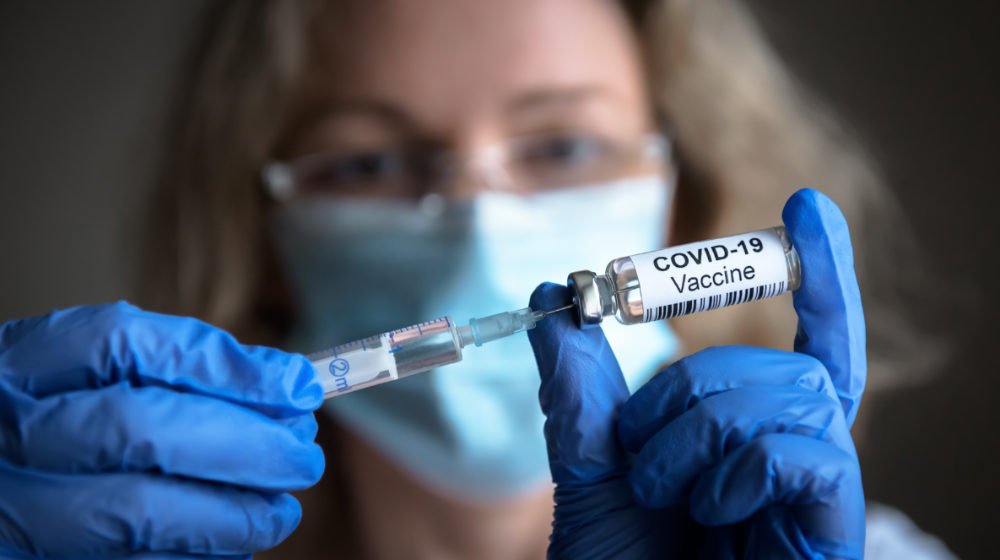Is Mandatory COVID Vaccine Happening? Everything We Need To Know About The COVID-19 Vaccination
The idea of having a mandatory COVID vaccine may seem unlikely, but some sectors are already thinking about it. What can you do when the time comes? Here’s everything you need to know when you prepare for the COVID-19 vaccination.
In this article:
- Is the COVID-19 Vaccine Mandatory?
- How Can You Object Against a Mandatory COVID Vaccine?
- Who Should Get the COVID-19 Vaccine First?
- Who Else Can Be Vaccinated?
- Who Should Not Take the COVID-19 Vaccine?
- Should You Still Get Vaccinated If You’ve Already Had COVID-19?
- When Will the COVID-19 Vaccine Be Available To You?
- What are the Benefits of the COVID-19 Vaccine?
- What are the Most Common Side Effects After Getting the COVID-19 Vaccine?
- Side Effects of the COVID-19 Vaccine on Seniors
- How Many Doses of the COVID-19 Vaccine Do You Need to Take?
- How Long Does the COVID-19 Vaccine Last?
RELATED: What Are Reiki Healing Hands?
Mandatory COVID Vaccine and How to Prepare for the Rollout
Is the COVID-19 Vaccine Mandatory?

Now that the COVID-19 vaccines are slowly becoming available to the public, questions have been raised about mandating them in the future. In a survey conducted by Glassdoor, 70% of the employee respondents are pushing for vaccinations to be required before returning to the office.
However, US President Joe Biden has made it clear that the COVID-19 vaccines will not be mandatory for Americans. Experts are also against the idea of a mandatory COVID vaccine, claiming that they are “legally and ethically problematic” if granted under Emergency Use Authorization.
How Can You Object Against a Mandatory COVID Vaccine?

Currently, there is no law that employers can refer to regarding mandatory vaccinations. However, the US Equal Employment Opportunity Commission introduced a technical assistance document that includes exceptions that may be raised.
You can say no to the vaccine if you are:
- Disabled
- Bound by religious beliefs that prevent you from receiving the vaccine
Who Should Get the COVID-19 Vaccine First?

According to the recommendations of the Centers for Disease Control and Prevention (CDC), the initial rollout of COVID-19 vaccines should prioritize the following groups:
1. Healthcare Personnel
- Physicians
- Nurses
- Nursing assistants
- Emergency medical service personnel
- Technicians
- Therapists
- Phlebotomists
- Pharmacists
- Residents of long-term care facilities
- Other essential staff for maintenance, engineering, and facilities management
2. Frontliners
- Police officers
- Firefighters
- Corrections officers
- Food and agricultural workers
- Manufacturing workers
- Grocery store workers
- Public transit workers
- Workers in the educational sector
3. Senior Citizens
- Senior citizens aged 65 and older
- People aged 16-64 years with underlying medical conditions
4. Essential Workers
- Food service workers
- Transportation and logistics workers
- Housing construction workers
- Finance and information technology workers
- Law and media workers
- Public safety workers
Who Else Can Be Vaccinated?

Most healthy individuals are eligible to take the COVID-19 vaccine, but the World Health Organization (WHO) has also specified the following qualified groups:
- Children above 16 years of age for the Pfizer-BioNTech COVID-19 vaccine
- Children above 18 years of age for the Moderna and Johnson & Johnson’s Janssen COVID-19 vaccines
- People with known medical conditions (hypertension, diabetes, asthma, kidney or liver disease, and other controlled chronic infections)
- International travelers
Who Should Not Take the COVID-19 Vaccine?

Apart from children below 16 years of age, WHO does not recommend the COVID-19 vaccine to the following:
- People with allergies to any ingredient or component of the COVID-19 vaccine
- Pregnant and breastfeeding women (data still limited)
- Frail older persons with less than 3 months of anticipated life expectancy
Should You Still Get Vaccinated If You’ve Already Had COVID-19?

According to a recent study, persons who have had COVID-19 in the past can develop an immunity to the disease that may last up to 8 months after infection. CDC recommends waiting for 90 days before getting vaccinated, especially if you have been treated with monoclonal antibodies or convalescent plasma.
RELATED: Peyronie’s Disease FAQs
When Will the COVID-19 Vaccine Be Available To You?

Due to the limited supply of vaccines in the US, there are no specific dates yet for mass distribution. However, the CDC has provided vaccine rollout recommendations for the federal and local governments can refer to.
Some state health departments already have COVID-19 vaccination plans that you can ask for more information.
What are the Benefits of the COVID-19 Vaccine?

The CDC has also listed down the benefits of getting the vaccine to encourage Americans who may be concerned about its effectiveness. Here are some of the things you can rely on when you finally get vaccinated:
- Decreased risk of infection
- Lesser chances of getting seriously ill if you have COVID-19
- Can protect the people around you, especially those with higher risks for severe illness
- Creates an antibody response without getting sick
- Can help stop the pandemic from spreading in the long run
What are the Most Common Side Effects After Getting the COVID-19 Vaccine?

- Pain, redness, and swelling on the arm shot
- Tiredness
- Muscle pain
- Headache
- Nausea
- Fever
- Chills
Side Effects of the COVID-19 Vaccine on Seniors
Since the CDC recommends older adults to be prioritized for the initial vaccine rollout, here are the side effects you need to know about:
- Headaches
- Fevers and chills
- Fatigue
How Many Doses of the COVID-19 Vaccine Do You Need to Take?

There are multiple brands that are still undergoing clinical trials, but the CDC currently has three authorized and recommended vaccines:
- Pfizer BioNTech (2 doses, 21 days apart)
- Moderna (2 doses, 28 days apart)
- Johnson & Johnson’s Janssen (1 dose)
How Long Does the COVID-19 Vaccine Last?

The CDC admits that they do not know yet how long the protection of the COVID-19 vaccine lasts, but studies are already underway to determine. Learning more about vaccine-induced immunity would be possible in the future, as long as more people take the vaccine.
For the meantime, make sure to checkout this simple COVID-19 Infographics guide and help save lives:
While there are discussions and arguments about a mandatory COVID vaccine, getting vaccinated should be everyone's goal. The benefits still outweigh the consequences of suffering from COVID-19, so don’t hesitate to sign up for your vaccination. You don’t even have to pay for anything—the vaccine is completely free.
Do you think a mandatory COVID vaccine should be implemented? Share your thoughts with us in the comments below!
Up Next:
- Getting Infected With COVID-19 Changed My Life Forever
- Coronavirus Vaccine News: Moderna Shows 94.5% Success
- Vaccines by May
Calling all crafting Health Buffs! If you’ve got the gift of keeping healthy and sharing this knowledge through writing, click here if you want to write for us.
Please stay connected with us on Facebook, Twitter, Instagram, and Pinterest, and make sure to join our community of healthy living and minded people here.
Trending
Tongue Color | 7 Scary Tongue Color Meanings
Lecithin Benefits and Side Effects: 10 Surprising Truths
Get Updates
SIGN UP FOR OUR NEWSLETTER TODAY

Tongue Color | 7 Scary Tongue Color Meanings

Lecithin Benefits and Side Effects: 10 Surprising Truths

Related

Tongue Color | 7 Scary Tongue Color Meanings


